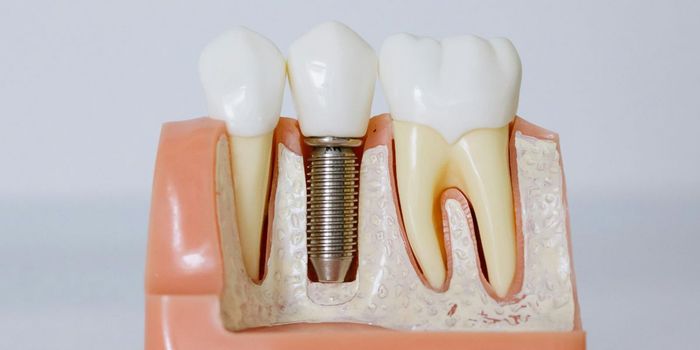Merck's COVID-19 Drug Halves Risk of Death in Mild & Moderate Cases
While Dr. Anthony Fauci of NIAID is already stressing that people should still get vaccinated to help reduce COVID-19 infections and end the pandemic, a new treatment has been developed that could be another great tool in the effort to stem the impact of infection. Merck's experimental pill, called molnupiravir, is the first of its kind; other currently available and authorized treatments can only be administered through injection or IV. If people can take a pill and recover from a case of COVID-19 at home, it could take massive strain off of the healthcare system that has seen people dying from illnesses that are unrelated to COVID-19 because hospitals are full of unvaccinated people infected with SARS-CoV-2. This new drug could also bring treatment to underserved areas.
In a clinical trial, molnupiravir reduced COVID-19 deaths in the unvaccinated by half compared to a placebo. While it has not yet been approved by regulators, the trial went so well, it was halted early. In this relaively small study, 775 COVID-19 patients with mild to moderate cases who were at high risk because of underlying conditions like diabetes or heart disease were given either the treatment, molnupiravir, or a placebo. After five days on the drug, 7.3 percent of patients ended up in the hospital or had died, while after five days of a placebo treatment, 14.1 percent had been hospitalized or died. Larger studies in the future will probably give us a better, more accurate picture of how well it works.
This research has not yet been peer-reviewed, but it's being submitted to the FDA within a few days. Merck and partner Ridgeback Biotherapeutics are confident, and plan to request authorization for use around the world.
The drug was not tested in vaccinated patients with breakthrough cases, which tend to be mild. The FDA may eventually authorize it for broader use. And vaccination still remains the primary strategy for stemming the pandemic, according to White House coronavirus coordinator Jeff Zients. “We want to prevent infections, not just wait to treat them when they happen,” he said.
The Associated Press reported that virologist Andrew Pekosz of Johns Hopkins University suggested that both antivirals and vaccines would likely be used in tandem to reduce the impact of COVID-19. “These shouldn’t be seen as replacements for vaccination; the two should be seen as two strategies that can be used together to significantly reduce severe disease,” said Pekosz.
This drug works by interfering with the virus's ability to reproduce, though the exact mechanism has not yet been outlined. It only benefits patients before they get really sick; the drug did not help people who were already hospitalized with a severe case.
The drug regimen is four pills per day for five days, and while people who took the molnupiravir and those who took a placebo reported drug-related side effects, that number was about the same in both groups: 12 percent of molnupiravir-treated and 11 percent of placebo-treated people. Merck has not yet said what those adverse events were.
If the FDA approves use of molnupiravir, the US government is planning to purchase enough of it to treat 1.7 million people.
Merck has not announced prices, but has said it can make enough for 10 million patients, and is contracting with governments worldwide. In their press release, Merck stated that they want to ensure that molnupiravir can be accessed globally once authorized or approved, and will price the drug on a sliding scale based on World Bank country income criteria that "reflects countries’ relative ability to finance their health response to the pandemic."

![[Cropped from] Colorized scanning electron micrograph of a cell (purple) infected with a variant strain of SARS-CoV-2 virus particles (pink), isolated from a patient sample. Image captured at the NIAID Integrated Research Facility (IRF) in Fort Detrick, Maryland. Credit: NIAID](https://d3bkbkx82g74b8.cloudfront.net/eyJidWNrZXQiOiJsYWJyb290cy1hc3NldHMiLCJrZXkiOiJfcHVibGljXC9fZmlsZXNcL3N5c3RlbVwvY2tcL3RyZW5kaW5nXC81MTUxMTk0MDE0MF8xN2JmNjU2Njc4X2tfZWFmMWVkNWYzOTIzM2VkYzY3ZTJkOTVkODU0NjE3YTkuanBnIiwiZWRpdHMiOnsicmVzaXplIjp7IndpZHRoIjoxNDAwLCJmaXQiOiJjb3ZlciJ9fX0=)








